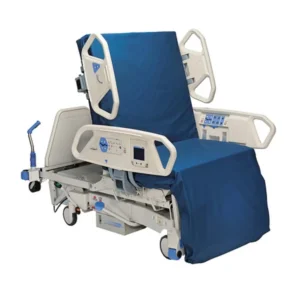ABS Control Module: The Precision Engineer of Your Braking System
In the modern driving world, safety is not just a feature—it’s a requirement. Behind the scenes, there’s a small but critical device making sure you stop safely even under the most challenging conditions: the ABS control module. Acting as the command center for the anti-lock braking system, it blends electronics, hydraulics, and data analysis into one seamless operation.
Understanding the ABS Control Module
The ABS control module is essentially a microcomputer dedicated to brake safety. It constantly monitors wheel speed through sensors and makes lightning-fast decisions to prevent wheel lock-up. Instead of allowing brakes to clamp down fully and cause a skid, it rapidly adjusts brake pressure, letting the wheels keep turning and maintain traction.
Why Preventing Wheel Lock-Up Matters
When a wheel locks during braking, it stops turning and starts sliding along the road surface. This reduces friction between the tire and the road, lengthening stopping distance and removing your ability to steer effectively. The ABS control module works to avoid this scenario entirely, helping drivers maintain both speed reduction and steering control in emergencies.
The Chain of Communication
An ABS control module doesn’t work alone. It operates as part of a network of components:
- Wheel Speed Sensors – Provide real-time data on each wheel’s rotation speed.
- Hydraulic Control Unit (HCU) – Executes the module’s commands by adjusting brake fluid pressure.
- Brake Pedal Input – Signals when and how hard the driver is braking.
- Other Safety Systems – Often integrate with ABS for traction and stability control.
This instant exchange of information ensures smooth, controlled braking in varied conditions.
ABS Control Module and Modern Driving Systems
In modern cars, the ABS control module is more than a brake manager—it’s a data hub. It often shares information with:
- Electronic Stability Control (ESC) to keep the car from spinning out.
- Traction Control to reduce wheel spin during acceleration.
- Adaptive Cruise Control to help with safe distance braking.
By connecting with these systems, the module contributes to overall vehicle intelligence.
How It Works During Braking
Here’s what happens in a fraction of a second when the ABS kicks in:
- You hit the brake pedal hard.
- Sensors detect that one or more wheels are decelerating faster than others (about to lock up).
- The ABS control module sends a signal to release brake pressure slightly.
- Once traction is regained, pressure is reapplied.
- This cycle repeats many times per second, producing the familiar pulsing feel in the brake pedal.
Driving Scenarios Where It Saves the Day
The ABS control module is particularly valuable in:
- Wet weather braking where hydroplaning risk is high.
- Snowy or icy roads where traction changes instantly.
- Gravel or dirt roads where uneven surfaces cause sudden grip loss.
- Urban stop-and-go traffic where quick braking is common.
In each case, it works invisibly to help prevent dangerous skids.
Common Signs of Trouble
Like all electronic components, the ABS control module can develop faults. Some common warning signs include:
- ABS warning light illuminated on the dashboard.
- Loss of anti-lock function, causing brakes to lock during hard stops.
- Multiple warning lights for traction or stability control (if systems are linked).
- Unusual braking behavior such as increased stopping distances or erratic pedal feel.
Because ABS often works in the background, these symptoms may be the only clear signs of an issue.
Why ABS Control Modules Fail
Failures can occur for several reasons:
- Electrical corrosion in connectors due to moisture or road salt.
- Sensor failure sending inaccurate wheel speed data.
- Internal circuit damage from voltage spikes.
- Physical impact damage from collisions or debris.
Addressing these issues quickly can prevent loss of vital safety features.
Technology Evolution in ABS Modules
Over the years, ABS control modules have evolved from basic braking aids into sophisticated safety processors. Modern versions:
- Process data hundreds of times per second.
- Adapt braking to the type of surface detected.
- Communicate with other advanced driver-assistance systems (ADAS).
- Learn driving patterns to optimize intervention timing.
This evolution is part of a broader move toward smarter, more predictive vehicle safety systems.
Maintenance for Longevity
While you can’t directly service an ABS control module like an oil filter, you can maintain the systems it depends on:
- Check brake fluid quality regularly to avoid hydraulic contamination.
- Inspect wheel speed sensors for dirt or damage.
- Protect wiring from corrosion or rodent damage.
- Respond to warning lights immediately rather than postponing repairs.
Preventive care helps keep the ABS functioning reliably for years.
Why You Shouldn’t Ignore It
Driving without a functioning ABS control module doesn’t mean your brakes stop working, but it does mean your safety margin is reduced—especially in emergencies. Without ABS, locked wheels can send your car skidding out of control, making it harder to avoid obstacles or steer to safety.
Looking Ahead
Future ABS control modules will likely integrate even more tightly with self-driving systems. They may use predictive data from navigation, weather forecasts, and even traffic reports to prepare braking responses before you touch the pedal. This proactive approach could further reduce accidents and improve overall traffic safety.
Final Thoughts
The ABS control module is one of those parts you rarely think about—until it’s not there. It processes vast amounts of data in the blink of an eye to keep you stable, steerable, and safe in challenging situations. By understanding its function and staying alert to warning signs, drivers can ensure this unseen safety partner remains in top working condition, ready to assist when it matters most.




